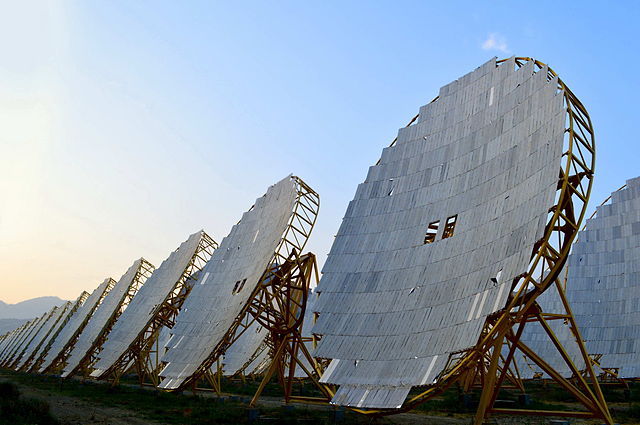
U.S., China and India responsible for half the world’s clean energy investment
by Cleantech Canada Staff

Clean Energy Canada reports the world’s three largest electricity markets were responsible for $348 billion in energy investment in 2016; costs of solar and wind continue to fall as more jobs open up in these fields

Along with the U.S. and China, India has invested heavily its renewable energy generation in recent years, focusing on solar energy in particular. The India One Solar Thermal Power Plant pictured. PHOTO: Bkwcreator, via Wikimedia Commons
VANCOUVER—New analysis from Clean Energy Canada shows the world’s three largest electricity markets—China, the U.S. and India—were collectively responsible for half of global clean energy investment in 2016, which totalled $348 billion.
China alone has invested over half-a-trillion dollars in clean energy in the last five years.
India is also emerging as a major destination for clean energy investment, as it pursues a goal of delivering 175 gigawatts of renewable energy by 2022—a tripling of capacity relative to 2015.
The newest energy transition report from Clean Energy Canada, a clean energy and climate change think-tank within Simon Fraser University, highlights other significant developments:
- While total clean energy investment fell from a record-setting level in 2015, the amount of renewable electricity capacity added in 2016 rivalled 2015, as clean energy technology costs continue to fall.
- The solar industry created one out of every 50 new jobs in the U.S. last year, while wind turbine technician is the U.S.’s fastest-growing occupation.
- There were 6.7 million clean energy jobs worldwide in 2015.
- Between 2015 and 2025, the International Renewable Energy Agency projects generation costs for onshore wind to fall 26 per cent, while offshore wind generation costs will fall 35 per cent and utility-scale solar costs will drop 57 per cent.
“The clean energy transition now appears irreversible. In developed and developing countries alike, fossil fuels are being beat out by renewable power that is clean, increasingly cost-competitive and a source of economic opportunity,” said Merran Smith, executive director, Clean Energy Canada.